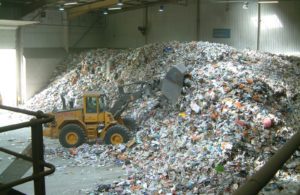National bank of ukraine’s official rates as of 13/06/19

Source: National Bank of Ukraine

The volume of reinsurance of risks by Ukrainian insurers in Austria in January-March 2019 tripled to UAH 168.5 million and accounted for 21.5% of the total reinsurance abroad, according to the website of the National Commission for the State Regulation of the Financial Services Market.
According to the regulator, reinsurance in Switzerland decreased by 4.9 times, to UAH 54.1 million. The reduction of Switzerland’s share in the total reinsurance of Ukrainian risks abroad decreased to 6.9% in Q1, 2019 from 31.3% in Q1, 2018.
The share of reinsurance in Germany increased from 13.9% to 21.3% (UAH 167.6 million), Great Britain from 15.5% to 18.4% (UAH 144.8 million), in Poland decreased from 11.5% to 10.2% (UAH 79.9 million), France increased from 3.4% to 5.4% (UAH 42.5 million).
According to the regulator, outgoing reinsurance operations in the first quarter of 2019 rose by 2.2%, to UAH 4.433 billion due to the increase in domestic reinsurance by 4.5%, to UAH 3.658 billion. At the same time, reinsurance of non-residents declined by 7.6%, to UAH 785 million.

The Greek energy company Flow Energy & Environmental Operations S.A. is interested in Ukrainian electronic oil and gas auctions and is ready to invest up to EUR 1.2 million in hydrocarbon deposits, Ukraine’s State Service of Geology and Subsoil has reported.
According to the service, the energy company got acquainted with the primary and secondary geological information on five fields, auctions for which are scheduled for June 18.
“Our company intends to take part in the next auction. Despite the fact that we are a small company, we are interested in five oil and gas deposits with a total cost of more than EUR 1 million. I hope that this is only the beginning and we will be active participants in the Ukrainian energy market,” the press service said citing the president of the Greek company, Tereza Fokianou.
The service noted the low level of participation of foreign companies in oil and gas auctions, but said they were working to attract foreign investors.

Ukraine International Airlines (UIA, Kyiv) has announced the launch of a strategic partnership with the U.S. network of duty free shops Duty Free Americas (Florida), UIA Vice President Serhiy Fomenko and the vice president of Duty Free Americas have said at a press conference at Boryspil International Airport (Kyiv).
According to them, in particular, UIA and Duty Free Americas are launching a pre-order duty free service.
Fomenko said the pre-order duty free service will provide passengers with the opportunity to order duty free goods not at the airport but online, along with an invitation to check-in.
There will be 5,000 goods in the catalog. It will be available to passengers on the airline’s website in July 2019.
Duty Free Americas is a network of duty free shops in the United States, Mexico and Latin America. It was founded in 1983 and is based in Hollywood (Florida, the United States). Previously, the company was known as World Duty Free Americas, and was renamed Duty Free Americas in October 2001.

It is planned to build a waste recycling plant with a total annual capacity of 700,000 tonnes of waste in Kyiv, which will also sort waste, the press service of the Kyiv City Administration has reported.
“The city plans to build a waste recycling complex, which will have a total annual processing capacity of 700,000 tonnes and will include a sorting stage,” the administration said.
According to Deputy Chairman of the Kyiv City Administration Petro Panteleyev, Kyiv has clear plans for gradually quitting the technology of waste disposal as obsolete and environmentally dangerous one.
He also recalled that the National Waste Management Strategy was adopted in October 2017, and the National Plan in February 2019.
“The updated legislative base works only a few months. Nevertheless, the Kyiv city is preparing its own regional waste management plan for Kyiv. This is a comprehensive document, being agreed with the Regional Development, Construction, Housing and Utilities Economy Ministry and the Ecology and Natural Resources Ministry,” the deputy head of the administration said.
In addition, Panteleyev said that Kyiv had refused placing a waste recycling plant near combined heat and power plant 6 (CHPP-6) in Troyeschyna district (Desniansky district of Kyiv).
“I want to immediately say that there was no speculation and gossip. The city refused to build a waste recycling plant near CHPP-6,” the deputy head of the administration said.